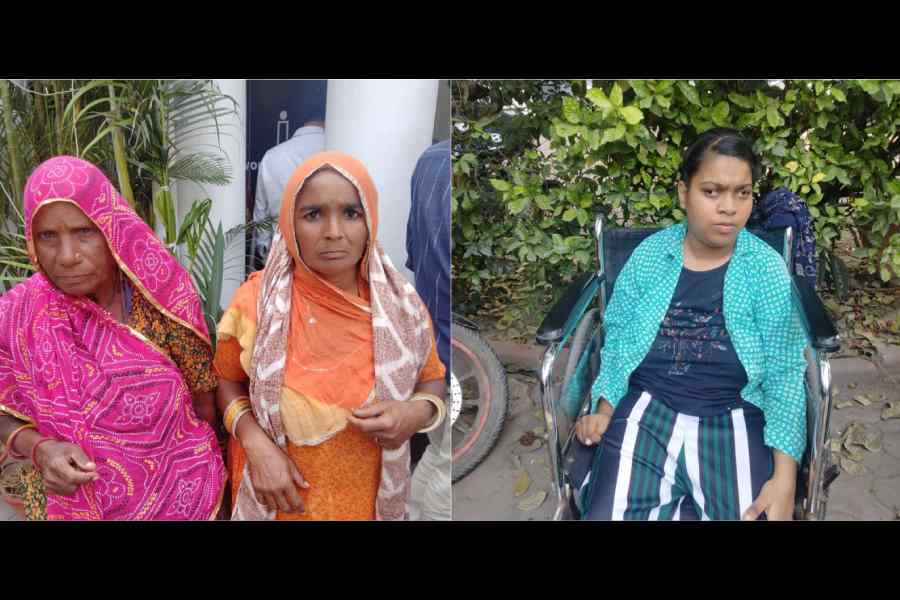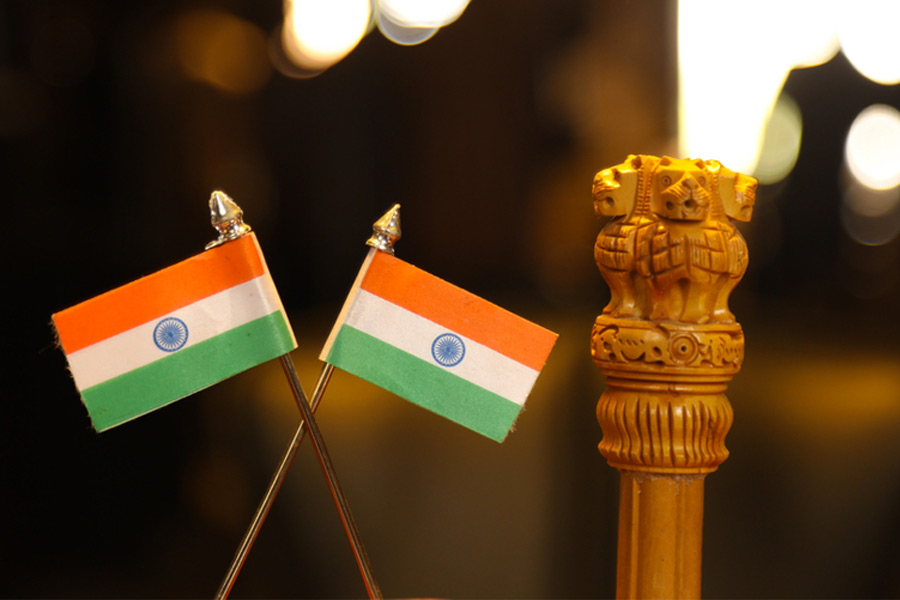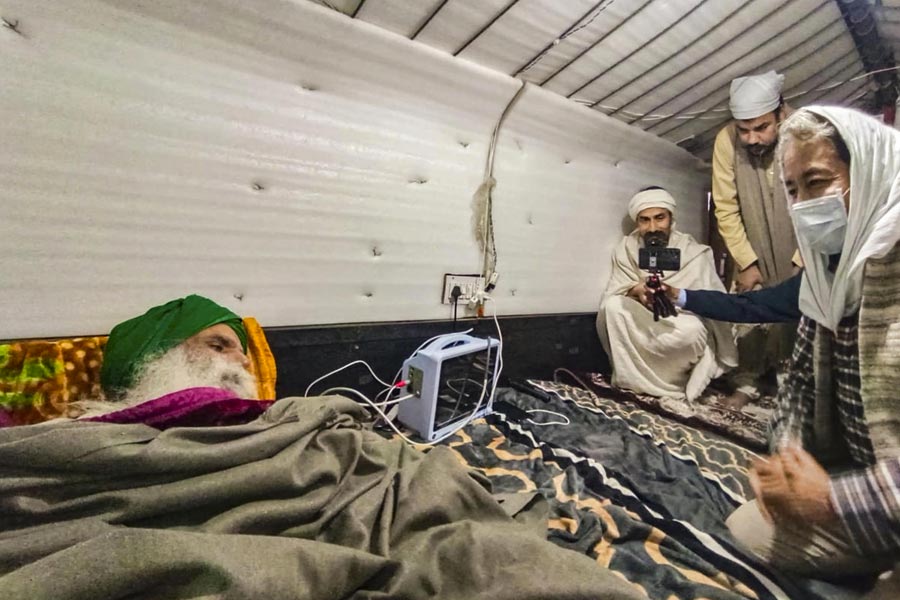Gudia, 22, who is mentally unstable and physically challenged, cannot stand on her own and often uses her hands to crawl around her house at Nurshingpura Mohalla in Beawar town of Rajasthan.
In the process, her fingers have corroded to the extent that her thumb impression no longer matches the one recorded in the Aadhaar database, making her ineligible for monthly pension under the Chief Minister Disability Pension Scheme (CMDPS).
But the entry against her name citing the reason for ineligibility is intriguing: “Out of state.”
The plight of Gudia, and several other beneficiaries of government schemes in Rajasthan, has brought to the fore the insensitivity and cavalier way in which the poor and helpless are treated, so much so that the verification process for government schemes that sustain them does not even factor in ways to mitigate biometric hurdles.
Worse, the officials entrusted with the verification process often arbitrarily cite reasons such as “death and “out of state” to strike them off lists of scheme beneficiaries.
The Telegraph has sent an email to Rajasthan chief secretary Sudhansh Pant asking about the allegations of removal of beneficiaries and the citing of bogus reasons. His response is awaited.
The BJP came to power in the state last year after five years of Congress rule.
Since December 2022, the state government’s pension portal, which has the details of persons receiving benefits, has been showing Gudia to be “out of state”. Gudia, whose Aadhaar card too has been deactivated for reasons she is unaware of, would have received ₹1,150 a month under the CMDPS. When her name was removed from the beneficiary list, the pension amount was ₹750.
Gudia’s mother Geeta Devi, a widow, makes mehndi cones for a living and earns about ₹100 a day. She appealed to the government to restart Gudia’s pension immediately and also pay the arrears.
“My daughter’s pension has been discontinued. The Jan Aadhar database wrongly says that she is ‘out of state’. She is unable to move properly. The pension is crucial to run our household. Let the government carry out a physical verification by sending an official to our home and correct the record in the database,” Geeta said.
On Tuesday, Gudia travelled to Delhi with several other victims of digital blunders that have made them ineligible for benefits under government schemes in Rajasthan. At a media conference organised by the civil society group Pension Parishad and Mazdoor Kisan Shakti Sangathan (MKSS),they laid bare their woes.
Nikhil Dey from the MKSS cited Rajasthan government data to say that the pensions of 13.54 lakh beneficiaries under the CMDPS, CM Old Age Pension Scheme and the CM Widow Pension Scheme have been cancelled in the last two years because of failure to clear the verification process. On the pension portal, the reasons cited against the cancellations include “death” and “out of state”, Dey said.
Dey said the situation was similar in other states.
The Rajasthan government receives some funds from the centrally sponsored National Social Assistance Programme (NSAP) for running these schemes.
Dey said the pensioners have to undergo verification every year around November-December to prove that they are alive. In addition, they have to do an eKYC of their Jan Aadhaar, a card issued to families with details of the beneficiaries and the dole received. The eKYC process requires bank and Aadhaar details. For both proof of life and eKYC, Aadhaar-based verification is required.
Shankar Singh, an activist, said pension beneficiaries are required to visit e-mitra centres, government-authorised privately managed service kiosks, in villages for the verification process. The verification process is finger impression-based and if the thumb imprint does not match the biometric data in the Aadhaar database, the person’s name is struck off the pension-recipient list.
“Because of old age and manual work, the fingers get eroded and the thumb impression does not match. The e-mitra centres do not have provisions for iris verification. The officials handling the pension scheme at the block level cancel the benefits of those whose biometric data do not match by citing arbitrary reasons such as ‘death’, ‘out of state’ and ‘unverified person’,” Singh said. The block-level officials take decisions based on the reports sent by thee-mitra centres.
Dey said the officials should do manual verification in case of digital mismatch and not cancel benefits outright. Some people may have died or migrated to other states, but thousands of people have been deprived of their rightful benefits because of wrongful cancellation, he said.
In a recorded video message played at the media conference, retired Supreme Court Judge, Justice Madan B. Lokur, said denial of pension to genuine beneficiaries because of Aadhaar mismatch is a violation of the right to life.
Activist Usha Ramanathan said the Aadhaar was projected as a technology to bring transparency and make delivery of government services more efficient, but the implementation had been marred by the digital divide and errors. She said Aadhaar should not be used for the delivery of government benefits.
If Gudia was shown to be “out of state”, Kanchan, 40, from Singla village in Ajmer district has been mentioned as “dead” in the CMDPS database. Kanchan said she has been approaching the gram panchayat, pension camps and e-mitra centres for the past two years to get her digital record corrected, but to no avail.
The Rajasthan government has not added any new beneficiaries under the disability pension scheme since March after the Union social justice ministry mandated that disability certificates be uploaded to the Universal Disability ID (UDID) portal.
Manmohan, general secretary of the National Platform for the Rights of the Disabled, said the state’s Jan Aadhaar data has not been shared with the Union government’s UDID portal, as a result of which thousands of physically challenged persons have not been able to apply forCMDPS benefits.











